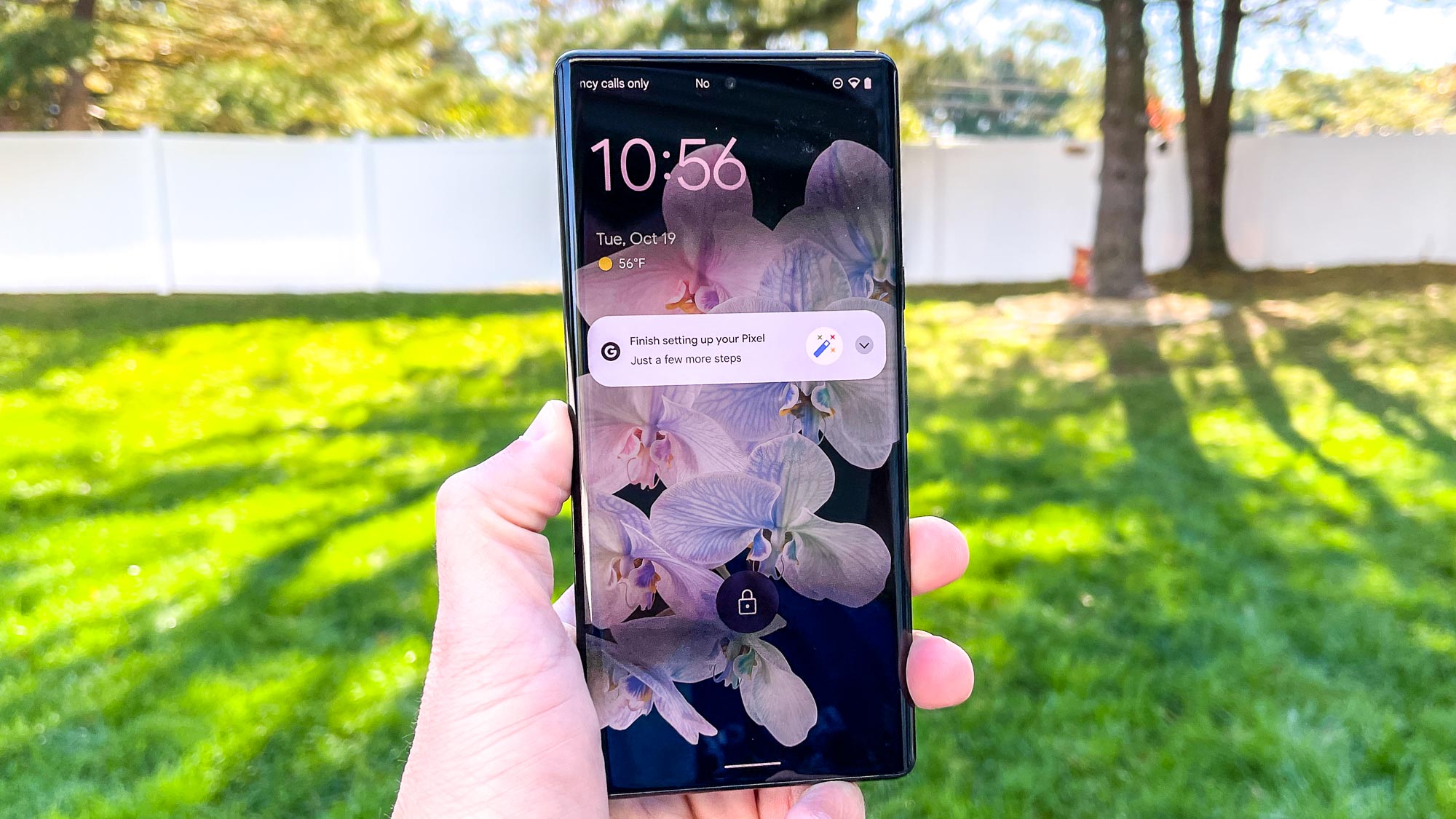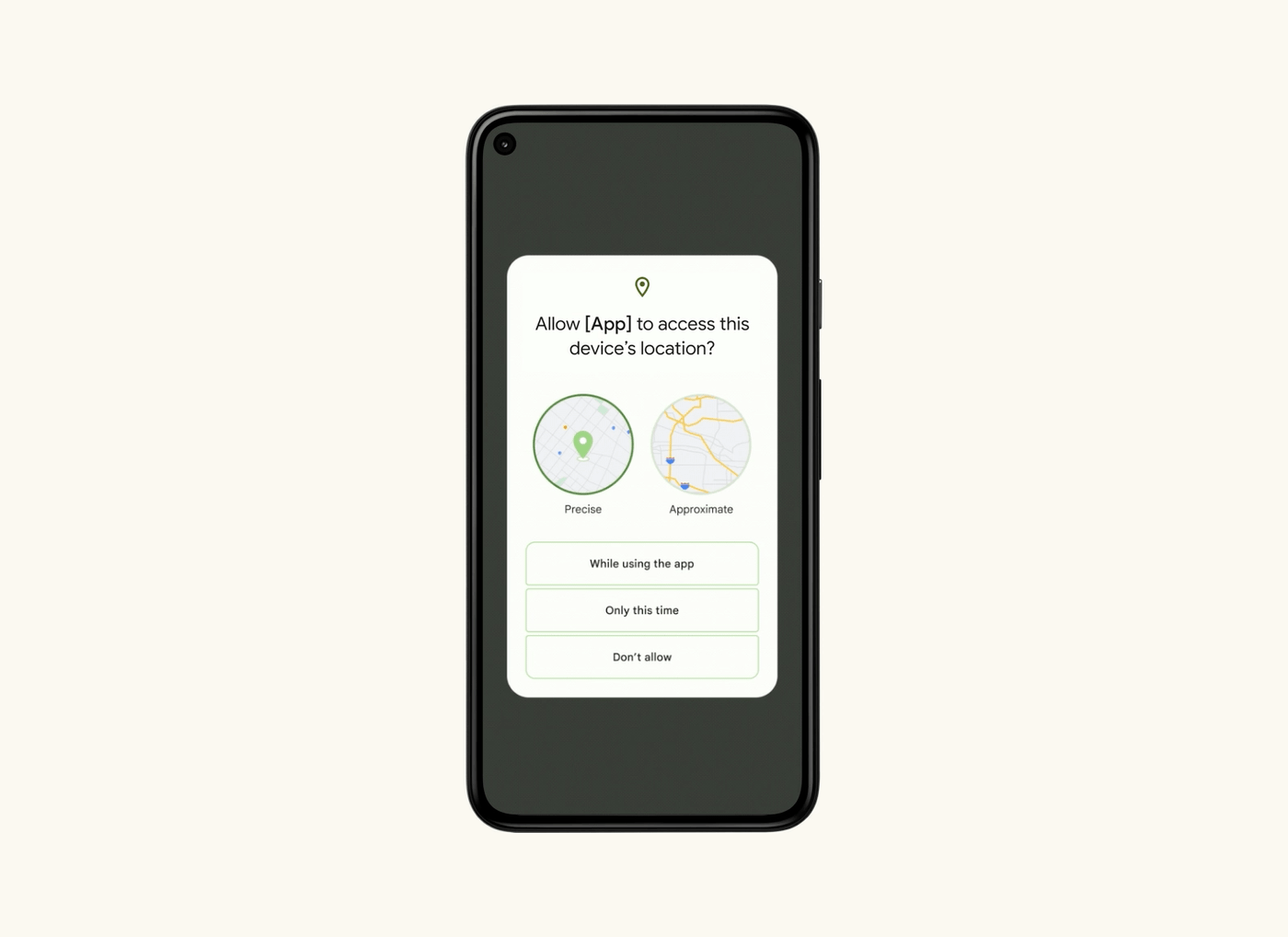Here's all the ways Google Pixel 6 boosts your security and privacy
Privacy Dashboard, Private Compute Core, Titan M2 and more

The Pixel 6 and Pixel 6 Pro have several new and upgraded features to enhance user privacy and security, including a new Privacy Dashboard, a Titan M2 secure enclave on the Tensor sensor-on-a-chip and a walled-off "security core" on the Tensor chip.
Other improvements include new tiles in the Quick Settings screen to toggle off the microphone and camera, plus notifications that overlay other apps to let you know when the camera and microphone are being used. Some of these are built into Android 12, so other phones will get them too, though several are Pixel exclusives.
- Pixel 6: Everything we know so far
- The best Android phones you can buy
- Plus: Google Pixel 6 pre-orders were a mess — but a waitlist will help
For example, an Android 12 feature called Private Compute Core isolates the personal data used to train Android's artificial-intelligence capabilities from other apps and limits some language processing to the device so it doesn't go to the cloud. It's separate from the Titan M2 and Tensor Security Core on the new Pixel phones.
You'll also be able to specify whether an app should get "approximate" or "precise" location data on all Android 12 phones. And as in modern versions of iOS, Android 12 will tell you when an app is reading from the Clipboard.
Many of the software improvements are, ahem, inspired by Apple, but the hardware factors on the Pixel phones seem to be entirely original. Unfortunately, we don't yet know that much about them. Here's everything that we do know.
Privacy Dashboard
The addition of the Privacy Dashboard to Android 12, a new item in the existing Privacy menu in Settings, is perhaps the most important change. Google is clearly responding to Apple's own privacy initiatives of the past couple of years.
The new Dashboard puts a ring chart at the top of the screen showing how much your location data, camera and microphone have been used in the past 24 hours. Right under that are text buttons that lead to logs showing each function's usage by apps in the past few days.
Sign up to get the BEST of Tom's Guide direct to your inbox.
Get instant access to breaking news, the hottest reviews, great deals and helpful tips.
App permissions for other phone functions, such as access to sensors and the calendar, are below that in an expandable menu. The Privacy Dashboard arguably goes a bit further than iOS in letting the user easily see which apps have been using what and for how long.

The Privacy settings, one click back, now include individual toggles for the camera and microphone that can turn those features off entirely for all apps. Until now, you'd have had to toggle the camera and microphone off for every app one at a time.
If you use your personal Android phone to access your workplace email, calendar and other services, there's a privacy setting that shows you which personal and workplace apps are connected (e.g. Gmail) and which settings are managed by your workplace's IT team.
What you won't get, as MacWorld pointed out back in May, is anything like iOS's App Tracking Transparency, which lets user quickly see which apps track them and disable that tracking.
You can in fact do this in Android, and with even more granularity (Settings > Google > Manage your Google Account > Manage your data & privacy > Ad personalization, which you can toggle off or edit), but it's not as easy or convenient as it is in iOS.
Camera and microphone toggles and notifications

Now that you can turn off the camera and microphone entirely in Android 12, there are two toggle switches that you can add to the Quick Settings menu, which you access by swiping down from the top of your phone's screen.
Toggling these settings on will not grant all apps access to your microphone or camera, but only those apps to which you have already granted individual permission. Emergency calls will be able to override toggled-off microphone and camera switches.
Even more significant are the onscreen notifications that indicate when the microphone and camera are being used. Apple's iPhones have had this feature for a while, and we're glad to see them show up in stock Android.
Security hub
Android 12's security settings have a new look due to the new operating system's aesthetic makeover, but otherwise they're little changed from earlier Android iterations.
The cute animation showing that Google Play Protect is scanning your apps has moved from the Play Protect submenu to the main Security hub page. It turns green when everything is A-OK, yellow when there's something of concern and red when things are truly bad.
But most of the other security options in Android 12 are unchanged: Find My Device, the latest Android security update your phone has received, fingerprint unlock and screen lock and so on.
There's also an indicator about your Google account's status with Google Security Checkup, which is handy but is nothing you couldn't get in more detail on the Google website itself.
Private Compute Core
This one's a bit hard to explain, but Google is creating a separate partition in Android 12 called Private Compute Core that "sandboxes" or isolates the processing of personal data that's used to train artificial-intelligence functions.
So the data processed by features such as the Live Caption speech recognition, the Smart Reply suggestion responses in messaging apps and the Shazam-like Now Playing music-recognition will not be visible to other apps. This means that the Facebook app, for example, won't know that you were listening to Adele or watching Squid Game.
All the data used by these functions will stay on the device and not go up to the cloud. Simple language processing will all happen on the phone. Google promises more functions and features will be added to Private Compute Core, so at some point we may see something akin to iOS 15's on-device live speech recognition, which works only with the most high-powered iPhones.
Titan M2 secure enclave
The second generation of Google's Titan M chips, the Titan M2 is where sensitive information such as passwords and PINs is stored on Pixel 6 and Pixel 6 Pro phones. The Titan M2 chip also works with Android's Verified Boot feature to safeguard the integrity of the Android build upon every reboot.
Tensor Security Core
The Tensor Security Core is a separate processor on the Pixel's Tensor chip that's different from the main processor and its Titan M2 chip. We're waiting for more information about this feature.
5 years of security updates
Following recent announcements by Samsung and OnePlus that their latest flagship devices would get four years of security updates, Google now has one-upped them with news that the latest Pixels will get five years. That's a far cry from the old days of Android, when some third-party phones got updates for only 18 months after launch.
It's not quite the same thing as full-on system updates to the current year's Android build, however. Google typically pushes out security updates to the past two versions of Android, so it's possible that these Pixels will get full system updates through Android 13, and then two years of security-only updates after that.
Apple has for years provisioned iPhones with the latest version of iOS for at least 5 years after launch, so while we're happy to see this change on Google's part, there's still room for improvement.
Safety app
This Pixel-exclusive app isn't new, as it's been available for previous Pixel phones. It has more to do with physical safety and privacy than the digital kinds, but it's still very important. The Safety app lets you designate certain people as "Emergency Contacts," then lets you send your real-time location data to those people in case of, well, emergency.
You can use Safety to set up a Safety Check, such as when you're walking home alone. Your phone will bug you at periodic intervals to make sure you respond. If you don't, then it sends your location to your Emergency Contacts. The app can also call 911 if it thinks you've been in an auto accident.
Fuzzy locations

Like iOS, Android 12 now lets you choose whether an app should get "precise" or "approximate" location data, if it gets location data at all. For example, you'd probably want Google Maps or Uber to get precise location (within about 100 feet), but a weather app can get by with approximate location (within a mile or so).
Clipboard notifications
Another iOS feature that's being, ahem, borrowed, this notifies you when an app is accessing the Clipboard, the temporary data being copied and pasted from one app or file to another.
This is more important than it sounds. For example, you'll want to know if a random game app suddenly reads the Clipboard while you're copying and pasting a sensitive password from LastPass into Chrome.
There's not much to stop that random app from reading the Clipboard — it's meant to be a shared resource, after all — but at least now you'll know. (Apple has gone a step further with this in iOS 15, restricting clipboard access until data was pasted into another app.)
Malware and phishing detection in messages and emails
This may be a Pixel-only feature — we're waiting for confirmation on that — but it involves scanning Facebook Messenger, Instagram, WhatsApp and text messages, as well as email messages, for known phishing and malware links and attachments.
It also looks for suspicious phrasing in messages. Either way, you'll get a warning to "Be careful with this message."
Relaxed restrictions for Nearby Share
On the possible downside, Android 12 expands the capabilities of Nearby Share, its answer to Apple's AirDrop file-sharing feature. Nearby Share now lets you choose to make your phone visible and able to receive files from any compatible Android device nearby.
Not only could that setting lead to a rash of intimate images showing up on your phone, as happened with iPhones, but it might make it possible for miscreants to drop malicious apps or files onto your device.
Paul Wagenseil is a senior editor at Tom's Guide focused on security and privacy. He has also been a dishwasher, fry cook, long-haul driver, code monkey and video editor. He's been rooting around in the information-security space for more than 15 years at FoxNews.com, SecurityNewsDaily, TechNewsDaily and Tom's Guide, has presented talks at the ShmooCon, DerbyCon and BSides Las Vegas hacker conferences, shown up in random TV news spots and even moderated a panel discussion at the CEDIA home-technology conference. You can follow his rants on Twitter at @snd_wagenseil.

